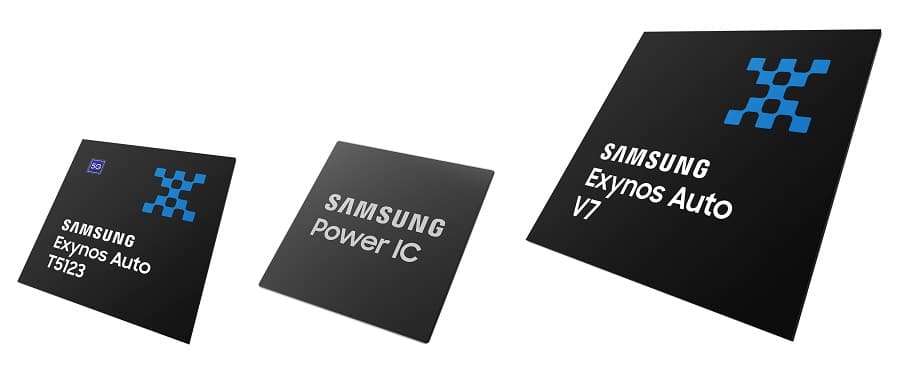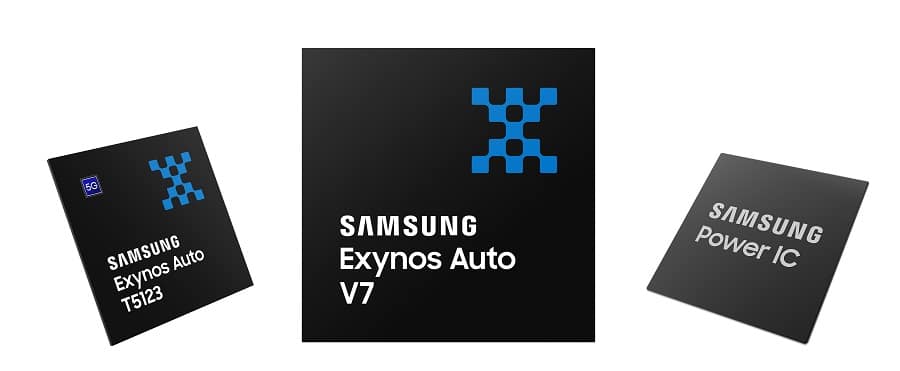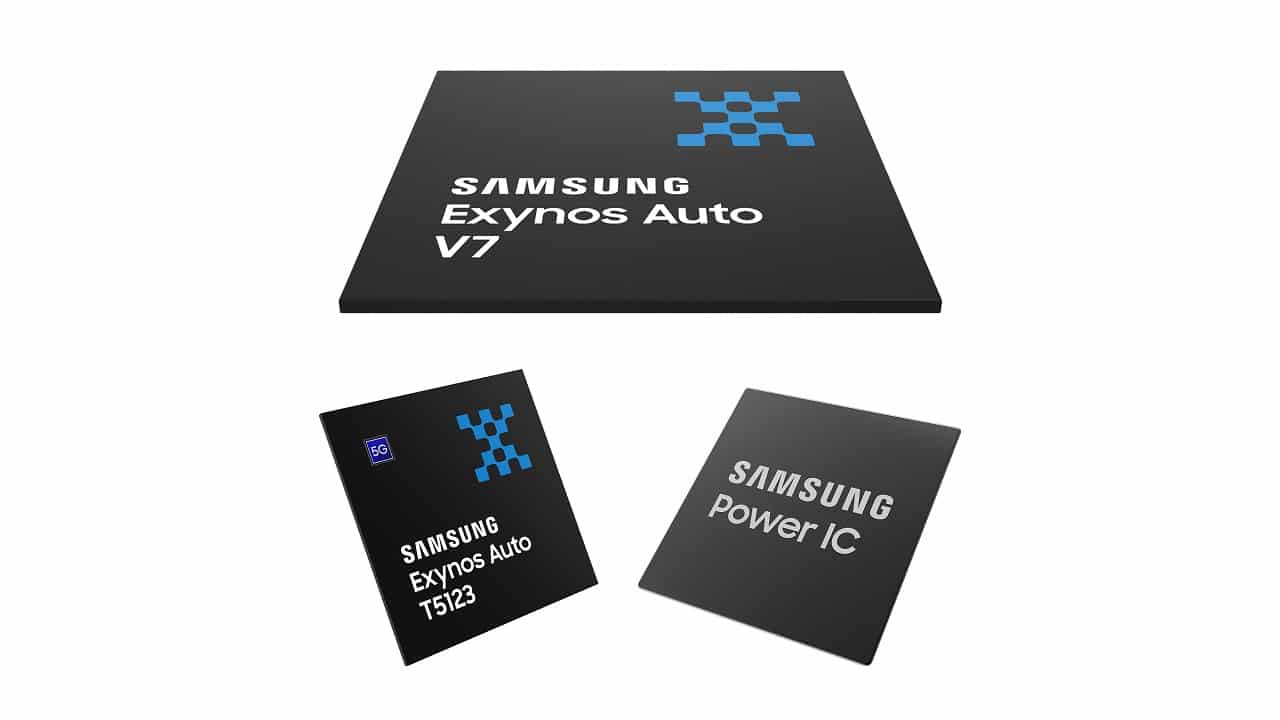The processor family Exynos from Samsung, having convinced on smartphones and tablets, it is ready to land also in the automotive world. Today the Samsung’s first 5G Exynos car modem, the Auto T513, plus other related solutions such as the Auto V7 processor. The peculiarity of these systems is that they were developed exclusively for automotive infotainment systems. So let’s find out what it is.
The link between Samsung and the car is closer than you think …
We are used to considering Samsung a multifaceted company. From its most famous division, the Mobile one with smartphones and tablets, to TVs, to white where with ovens, refrigerators and dishwashers, Samsung has recently arrived in the world of PCs with the successful Galaxy Book series. However, many are unaware that Samsung has been making cars for a long time, even before producing the first smartphone.
As we have often told when talking about other Korean companies such as LG or Hyundai, Samsung is indeed a chaebol. This word, which in Italian translates as conglomerate, defines a huge group that includes many companies gathered under one name. And as Hyundai manufactures steel, container ships and automobiles, Samsungn is South Korea’s largest chaebol, and has differentiated its activities between technology, food industry, textiles, insurance, securities and retail, construction and shipbuilding. Among all these activities, theautomobile.

In 1994, in fact, Samsung founded the Samsung Motors on the wave of the success of compatriots Hyundai, KIA and Ssangyong. After producing the Nissan Maxima sedan under license for the first few years, in 2000, Samsung Motors was bought by the Renault-Nissan Group, and today it is known as Renault Samsung Motors, or RSM. The RSM is still owned 19.9% by the Samsung Group, and produces some cars of the Renault range, such as Captur or Talisman. The current Renault Arkana, sold in Korea as Renault Samsung XM3, is in fact produced worldwide at the Renault Samsung plant in Busan, South Korea.
Exynos Auto T513, the first 5G car modem from Samsung: 2-core A55, connection up to 5.1 Gbps. But he won’t be alone
After this pill you can play at pub nights with friends, it’s time to talk about 5G car modem from Samsung, the Exynos Auto T513. Although Samsung is not new to the world of motors, the supply of its chips for the construction of infotainment systems had not yet been so important to the company. Today, however, this is bound to change. The Exynos Auto T513 is the Samsung’s first 5G in-car modem chip designed specifically for automotive use. Already in production, this modem can count on one CPU dual core Cortex A-55, and on satellite data for navigation.

By including navigation modules in the 5G modem, the total number of chips required for each vehicle is reduced, thus rationalizing production. Thanks to Samsung’s experience with 5G technology, the infotaiment system will be able to take advantage of download speed really excellent, up to 5.1 Gbps. But it is not the only product presented by Samsung. THETogether with its 5G modem for cars, Samsung also presented the Exynos Auto V7 chipset. This is a real one processor for automotive infotainment systems, therefore capable of becoming the fulcrum of an infotelematics system.
Exynos Auto T513 and V7: satellite data, support up to 4 screens and 12 cameras
Designed and developed for medium-high range vehicles, the Exynos Auto V7 SoC is made using an 8-nanometer manufacturing process, and will coordinate to connect with Samsung’s 5G car modem. For the management of power and energy, then, there is a third SoC, the Samsung Power IC, which will manage the amount of energy arriving and leaving the two modules. Returning to the V7 chipset, the SoC is equipped with an octa core Cortex-A76 CPU clocked at 1.5 GHz, and is coupled to a GPU Mali-G76 a 11 Core. The memoria RAM LPDDR4x can come up to 32 GB, and the graphics processor was made with an internal subdivision in mind already due cluster.

The GPU is indeed subdivided, with eight cores that are dedicated to the display of the digital instrument panel, while the other three cores deal with other displays or a single head-up display with augmented reality technology. The processor can support up to four different displays, with the possibility of installing them also in the rear seats. There is also no shortage of ben three integrated audio processors, which give the SoC the ability to output several audio streams, and one NPU for apps that leverage artificial intelligence. This technology is dedicated to the support of facial, voice and gesture recognition, to allow an almost complete degree of access to the infotaiment.
When will we see Samsung’s V7 processor and 5G car modem at work?
Finally, Samsung has not forgotten the support for cameras: In fact, Exynos Auto V7 can manage up to 12 cameras between parking assistance and a 360 ° view of the car. In conclusion, again Samsung has spared no expense, and aims to become a point of reference in this field as well. The Exynos Auto V7 chipset and the Samsung T513 5G car modem and the Samsung Power IC form a powerful system, independent and equipped with many possible functions.
With power like that, we really are eager to see on which cars these devices will be implemented, and what their performance will be. Surely, the automotive world wants to step on the accelerator of multimedia systems, which have remained too far behind smartphones and tablets for years. Giants like Samsung have now made real jewels of power available to manufacturers: we just have to wait to see the results. P.To try out an infotainment system powered by Exynos chips we will have to wait a little longer. If these are the premises, however, we will surely notice when they will spread.
















Leave a Reply
View Comments